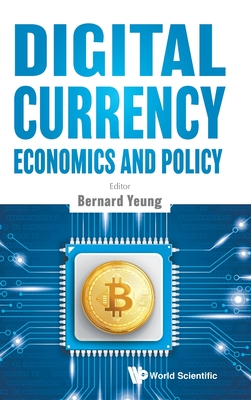Digital Currency Economics and Policy

Digital Currency Economics and Policy
Recent technological advancements, particularly the advent of distributed ledger, have made the development of private digital currencies possible. This raises some important questions: Whether private digital currencies can be considered "money" and their impact on monetary policy and the international monetary system; whether central banks should issue their own digital currencies and the impact of such actions; and the usage of the distributed ledger technology in the financial system.
In November 2018, the Asian Bureau of Finance and Economic Research (ABFER), the Economic Policy Group (EPG) of the Monetary Authority of Singapore (MAS), and the National University of Singapore (NUS) Business School co-organised a two-day workshop on Digital Currency Economics and Policy to explore these issues. Leading academic researchers in monetary and financial economics offered valuable stimulating insights useful to practitioners, policymakers and academics in a non-technical manner. This volume is a collection of their work.
This volume suggests that central banks will most likely issue digital currencies. There are many positive considerations. A central bank digital currency can generate useful information for the monetary authority, can enhance the effectiveness and flexibility of monetary policy, and may raise financial inclusion. Central bank digital currency, however, can have a significant impact on the banking and financial sector and could change a central bank's role in the economy.
This volume also explains crucial differences between distributed ledger and centralized ledger, which is the basis of currency payment systems. Continuous innovations have made the distributed ledger technology more resilient, auditable and scalable, giving it far-reaching applications and potential contributions.
For anyone who would like to gain a fundamental and comprehensive understanding of the impact of technology on our money and financial system and the future implications, this is a must-read volume.
PRP: 765.70 Lei
Acesta este Pretul Recomandat de Producator. Pretul de vanzare al produsului este afisat mai jos.
689.13Lei
689.13Lei
765.70 LeiIndisponibil
Descrierea produsului
Recent technological advancements, particularly the advent of distributed ledger, have made the development of private digital currencies possible. This raises some important questions: Whether private digital currencies can be considered "money" and their impact on monetary policy and the international monetary system; whether central banks should issue their own digital currencies and the impact of such actions; and the usage of the distributed ledger technology in the financial system.
In November 2018, the Asian Bureau of Finance and Economic Research (ABFER), the Economic Policy Group (EPG) of the Monetary Authority of Singapore (MAS), and the National University of Singapore (NUS) Business School co-organised a two-day workshop on Digital Currency Economics and Policy to explore these issues. Leading academic researchers in monetary and financial economics offered valuable stimulating insights useful to practitioners, policymakers and academics in a non-technical manner. This volume is a collection of their work.
This volume suggests that central banks will most likely issue digital currencies. There are many positive considerations. A central bank digital currency can generate useful information for the monetary authority, can enhance the effectiveness and flexibility of monetary policy, and may raise financial inclusion. Central bank digital currency, however, can have a significant impact on the banking and financial sector and could change a central bank's role in the economy.
This volume also explains crucial differences between distributed ledger and centralized ledger, which is the basis of currency payment systems. Continuous innovations have made the distributed ledger technology more resilient, auditable and scalable, giving it far-reaching applications and potential contributions.
For anyone who would like to gain a fundamental and comprehensive understanding of the impact of technology on our money and financial system and the future implications, this is a must-read volume.
Detaliile produsului








